At TrustPoint Hospital we believe education is an important first step in the effort to heal from a Neurological Disorder. Understanding the signs, symptoms, and effects of a Neurological Disorder can help you get the right type and level of care for yourself or a loved one.
Understanding Neurological Disorders
Learn about Neurological Disorders
When the brain, or any part of the central nervous system, is damaged, the aftereffects can have a profound impact how a person lives. Neurological disorders are conditions that occur when damage to the brain and/or central nervous system happens, which can cause a person to require treatment in order to improve his or her overall quality of life.
The following neurological disorders are among the most common that often warrant treatment and rehabilitative services when they are present:
Multiple Sclerosis is a disease that affects a person’s central nervous system. Also known as MS, this disease occurs when the protective outer layer of one’s nerves is attacked by an individual’s immune system and scar tissue forms where the nerve damage happened. As MS progresses, the nervous system’s ability to effectively communicate with other areas of the body becomes hindered as nerve fibers begin to die off and as scar tissue begins to accumulate because of the ongoing deterioration of the central nervous system.
Parkinson’s disease, a progressive disorder, is one that primarily affects an individual’s movements. When neurons, or nerve cells in the brain, begin to malfunction or die, the parts of the body that are controlled by that area of the brain are adversely affected. Because the nerve cells that control coordination and movement are primarily impacted when Parkinson’s disease is present, an individual’s ability to have full control over his or her face, jaw, hands, arms, and legs is hindered as a result.
Stroke occurs when the brain is deprived of blood supply, which then causes brain cells to die due to a lack of oxygen. There are two types of strokes:
- Hemorrhagic stroke is caused by a blood vessel that bursts within the brain.
- Ischemic stroke happens when a blood clot blocks blood flow to the brain.
When either of these types of strokes occur, the area of the brain in which the brain cells die is no longer able to communicate with certain parts of the body. As a result, muscle control and the ability to form new memories can be damaged.
Seeking treatment for any of the above conditions can greatly improve a person’s life. Because of this fact, it is crucial to consider care at a reputable center that is equipped to help individuals who are looking to minimize the effects of the neurological disorders from which they are suffering.
Statistics
Statistics on Neurological Disorders
Multiple Sclerosis
It is estimated that more than two million people in the world are living with MS, though researchers suspect that that number may be higher due to underreporting. Additionally, the average age of onset for MS symptoms is between the ages of 20 and 50, with women being diagnosed two to three time more often than men.
Parkinson’s disease
Research shows that as many as one million individuals in the United States are currently diagnosed with Parkinson’s disease, and that sixty thousand men and women are newly diagnosed each year. Most people are given a conclusive diagnosis of Parkinson’s disease after the age of 50, and more men are said to be impacted by this condition than women.
Stroke
Within the United States, stroke is the current leading cause of disability among Americans and is now the fifth leading cause of death. A stroke is believed to occur every forty seconds in this country, and someone succumbs to a stroke at least every four minutes. Lastly, medical professionals report that eighty percent of all strokes are preventable.
Causes and Risk Factors
Causes and Risk Factors for Neurological Disorders
Depending upon the type of neurological disorder that a person is suffering from or has suffered from, the exact causes and risk factors can be vast. Please consider the following when trying to understand why and how someone may come to struggle with MS, Parkinson’s disease, or stroke:
Multiple Sclerosis
Researchers have uncovered a variety of factors that may explain why some individuals develop MS while others do not. For instance, studies found that certain cells within the immune system are drawn to attack the outer layer of nerves, though research has yet to conclude why this occurs. Additionally, some research discovered that those who reside further from the equator are more likely to develop MS due to less exposure to vitamin D from the sun, and that smoking tobacco products increases the risk of developing this disease. Lastly, some experts believe that a person may develop MS if exposed to certain viruses or bacteria during childhood, or if the individual possess a genetic history of this disease.
Risk Factors:
- Early exposure to chlamydia pneumonia, Epstein-Barr, human herpes virus-6, measles, canine distemper, and other viruses or bacteria early in life
- Living in an area in which sun exposure is less frequent
- Personal history of smoking
Parkinson’s disease
While the exact causes for Parkinson’s disease are not fully known, experts and researchers commonly cite certain genetic and environmental factors as the main contributing factors to explain why and how a person may come to suffer from this disease. For example, if a person possesses a genetic history of Parkinson’s disease or if an individual has certain gene mutations, there is an increased risk for developing this disease. Further research also suggests that certain environmental factors can also increase the chances of experiencing Parkinson’s disease symptoms. Exposure to toxins or other harmful chemicals is believed to bring on this disease, though further research needs to be conducted in order to fully conclude why some individuals develop Parkinson’s diseases and others do not.
Risk Factors:
- Exposure to neurotoxins, insecticides, herbicides, fungicides, or other such harmful chemicals
- Exposure to well water
- Having a family history of Parkinson’s disease
- Living in a rural area
- Possessing certain genetic mutations
Stroke
The primary cause for a stroke is a lack of blood flow to the brain. However, the risks for experiencing a stroke can vary depending upon a number of lifestyle, medical, and other risk factors that can make a person more or less vulnerable to experiencing this type of disease.
Risk Factors:
- Being African American, Hispanic, Asian, or Pacific Islander
- Being female
- Being over the age of 55
- Diabetes
- Family history of stroke or heart disease
- Having a hole in one’s heart, or patent foramen ovale (PFO)
- Heart disease
- High blood pressure
- High cholesterol
- History of fibromuscular dysplasia or transient ischemic attacks (TIA)
- History of migraines
- Lack of physical activity
- Partaking in hormone replacement therapy (HRT)
- Personal history of alcohol use
- Personal history of prior stroke(s)
- Personal history of smoking
- Poor diet
Signs and Symptoms
Signs and Symptoms of Neurological Disorders
Different neurological disorders can bring about different signs and symptoms. Please note the following if trying to discern if you or a loved one may be suffering from MS, Parkinson’s disease, or a stroke:
(Note: For MS and Parkinson’s disease, the severity of the symptoms experienced correlates with how progressive the disease has become.)
Multiple Sclerosis:
- Depressed mood
- Difficulty breathing
- Dizziness
- Emotional disturbances
- Fatigue or tired feeling
- Feeling itchy
- Headaches
- Muscle stiffness or spasms
- Pain
- Problems with cognition
- Problems with controlling one’s bladder or bowels
- Problems with eyesight
- Problems with swallowing
- Problems with walking
- Sexual dysfunction
- Shaking or tremors
- Speech difficulties
- Weakened muscles
Parkinson’s disease
- Changes with speech
- Difficulties with automatic movements such as smiling or blinking
- Difficulty writing
- Muscle stiffness
- Posture difficulties
- Problems with balance
- Shakiness or tremors
- Slowed movements
Stroke
The following are the telltale warning signs that someone is having a stroke. Should any of the following be present, it is important to seek medical attention as quickly as possible:
- Confusion
- Difficulties with walking
- Difficulty speaking
- Dizziness
- Headache
- Numbness
- Poor coordination or balance
- Vision problems
- Weakened facial, arm, and/or leg muscles (can be on just one side of the body)
Effects
Effects of Neurological Disorders
Seeking treatment for a neurological disorder is extremely important. By seeking care, the impact of the neurological disorder can be lessened and the following effects are less likely to occur:
- Development of other medical conditions
- Inability to live independently
- Worsening of symptoms
Co-Occurring Disorders
Co-Occurring Conditions and Disorders
It is common for other medical conditions and mental disorders to be comorbid alongside neurological disorders. The following are lists of a few conditions and disorders that are known to impact the lives of those with neurological disorders:
Multiple sclerosis:
- Alcohol use disorder
- Anxiety disorders
- Bipolar disorder
- Cancer
- Chronic lung disease
- Depression
- Heart disease
- High cholesterol
- Hypertension
- Inflammatory bowel disease (IBD)
- Psoriasis
- Seizure disorders
- Sleep disorders
- Thyroid disease
Parkinson’s disease:
- Anxiety disorders
- Cancer
- Dementia
- Depression
- Diabetes
- Gastrointestinal disease
- Heart disease
- Osteoarthritis
- Psychotic disorders
- Sleep disorders
Stroke
The below listed conditions are disorders are those that are known to result after a person experiences a stroke:
- Depression
- Diabetes
- Heart disease
- Hypertension
- Seizure disorders
- Urinary tract infection







